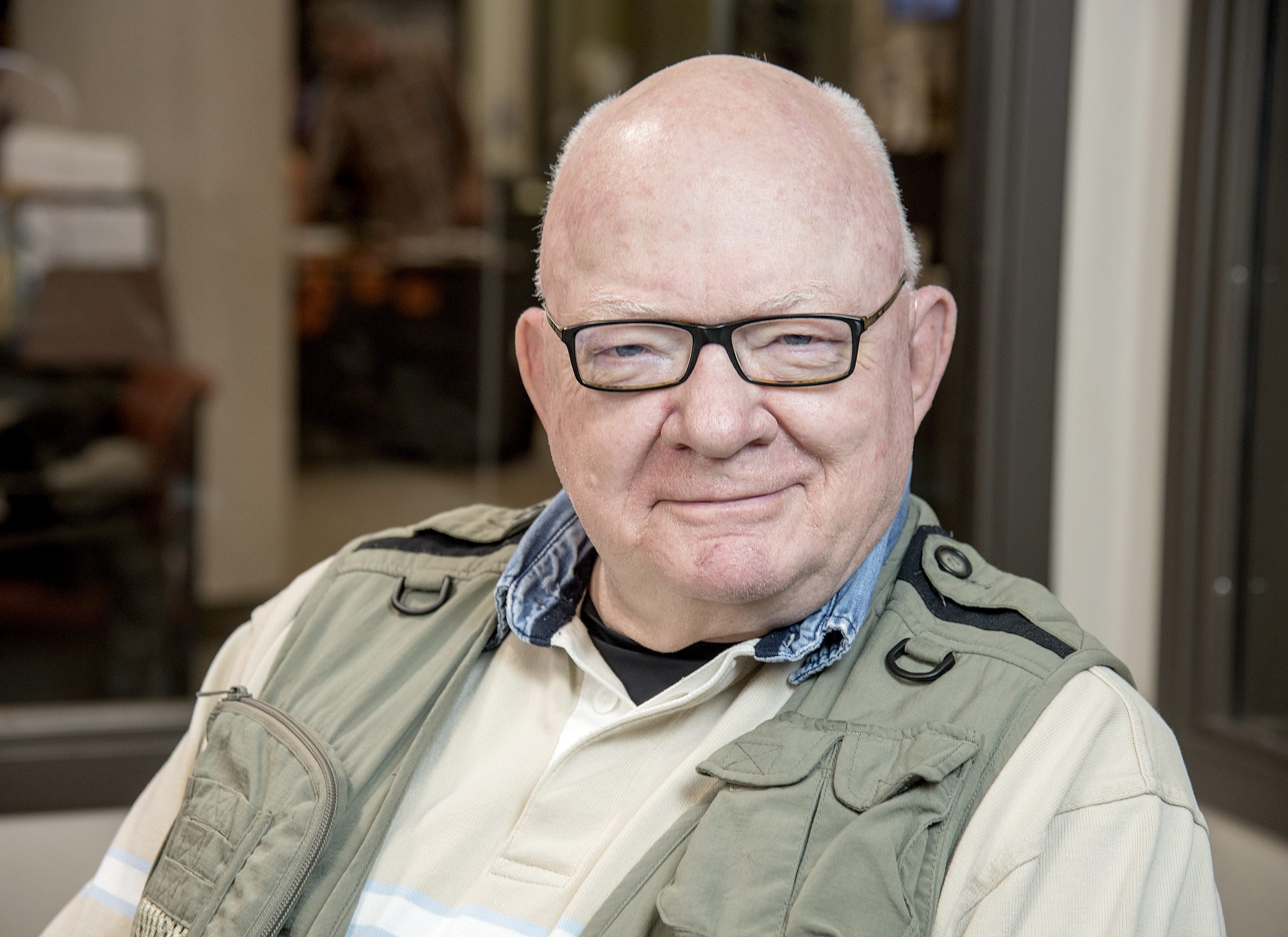Jim Morris
By Paul Wood

Photo By Rick Danzl/The News-Gazette
CHAMPAIGN — Sgt. Jim Morris endured “gruesome” scenes investigating war crimes in Kosovo.
A rock thrown at his vehicle turned out to be a grenade.
Earlier, when he was in the Air Force in the mid-60s, a nuclear bomb fell off a forklift and rolled past him into a water-filled ditch.
Born in Indiana, Morris, 73, spent all his life in law enforcement, both civilian and military — more than 54 years before an injury sidelined him.
He started as a clerk at the FBI right out of high school in 1964, and was promoted twice.
While working in the Jackson, Miss., FBI office in 1965, Morris drove some FBI agents to the scene of a bank robbery, where he dropped the agents off at the entrance to the bank and drove around the corner.
Morris noticed a man sitting on the curb sobbing, saying “They wouldn’t give me any money.”
He summoned the agents, who arrested the unfortunate bank robber.
Soon, he made a career change.
Morris served in the Air Force as a military police officer at a Dutch Air Base in Volkel, Holland, from 1966 to 1969.
At one point, a nuclear weapon rolled off a forklift. Morris said it was actually a safer situation than with a conventional bomb, because the nuke was built with many safeguards.
Morris then served as a patrol officer and field supervisor in Colorado and was named Officer of the Year in 1974.
From 1976 to 1978 he worked at Indiana State University as a police officer, before heading to Danville in 1978 to work as a patrol officer from 1978 to 1987 and then in Paxton.
In 1999, he retired from police work for the first time, and joined the United Nations Civilian Police force as a civilian contractor. He was sent to Kosovo as part of the U.N. peacekeeping force in the former Yugoslavia.
When Morris first arrived in Kosovo, the Canadian Army was serving as security backup for the U.N. Civilian Police.
In 1999, Morris and other U.N. forces located four murder victims along a wooded trail in Kosovo. “This was an example of ethnic cleansing that was going on in Kosovo,” he said.
Before moving the bodies, the police brought in a technician with a metal detector, who found that live grenades had been placed under the bodies, set to explode if the bodies were moved.
His unit also intercepted 50 AK-47 rifles being smuggled into the country.
In the summer of 2000 the Canadian Army units in Kosovo were replaced by Norwegian Army units.
The Norwegians had great food and knew how to cook, Morris recalled.
“We could get steak or lobster for five Deutsche marks,” he said, “the equivalent of $2.50 American.”
On another patrol in Kosovo, Morris and other U.N. police officers were driving down a street on a weapons raid when someone tossed a grenade at their vehicle.
The grenade bounced off the hood of the vehicle and over the top of the vehicle, landing in the street behind the vehicle, where it exploded.
In 2000, he was reassigned to a civilian police force in East Timor.
Following the 9/11 attack on the World Trade Center, Morris returned to Illinois, where he became the chief of security at the control tower at Willard Airport in Savoy.
He then worked for several small-town police forces. After a freak accident and a torn rotator cuff in 2017, Morris spent eight months on disability and in rehabilitation. He decided to retire again, this time for good.
Do you know a veteran who could share a story about military service? Contact Paul Wood at pwood@news-gazette.com
Read more stories from local veterans:
 David Stangl
CHAMPAIGN — Whether it was protecting state-of-the-art weaponry or chasing after locals who’d broken through the perimet …
David Stangl
CHAMPAIGN — Whether it was protecting state-of-the-art weaponry or chasing after locals who’d broken through the perimet …
 Dr. Douglas Jones
CHAMPAIGN — For Dr. Douglas Jones, a two-year enlistment in the Army meant spit-and-polish military funerals, military c …
Dr. Douglas Jones
CHAMPAIGN — For Dr. Douglas Jones, a two-year enlistment in the Army meant spit-and-polish military funerals, military c …
 Alexander Shay
CHAMPAIGN — Born near the end of World War I, Alexander Shay risked death on D-Day in World War II. Shay, who rose quick …
Alexander Shay
CHAMPAIGN — Born near the end of World War I, Alexander Shay risked death on D-Day in World War II. Shay, who rose quick …